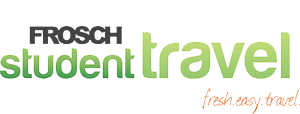
Travel Tips
Traveling should be fun. To help make sure it is, we've put together this list of common questions and expert advice.
Yes, it's okay to surf the web wirelessly, but think twice before entering personal information such as banking passwords or credit card numbers when connected wirelessly.
Open hotspots are also hotspots for hackers. Here’s how it works: though you think you’re logging on to the Internet through a legitimate wireless hotspot such as an airport’s, cafés or hotel’s complimentary Wi-Fi service, wireless hackers are creating look-alike networks to steal your information. The network’s name might be the same as the legitimate name or it might be different.
For example, when turning on your laptop at the airport you might be asked if you want to join the "Free Airport Wireless" network. It may be the real thing, or it may be a hacker’s network. If it’s the hackers, your laptop is an easy target.
No! Most airline programs have rules against this practice, and you could be denied boarding if caught. Today’s security technology increases your chances of getting caught and possibly being prosecuted. Additionally, these items are often copied or faked, leaving you the victim of fraud.
Use plastic bottles and only fill them half way (in case they’re crushed or the contents freeze and expand), place plastic wrap over the top, and put the cap on tightly over the plastic wrap. You also might want to pack them in plastic freezer bags.
Check several itinerary options. Different routes or days traveled can save you points to use for another trip.
Check airline partners. Many airlines have partnership agreements that will accept frequent flier points from your regular airline.
Stay in hotels and use rental car companies affiliated with your program. When you charge meals and services to the hotel room, you can earn even more points. You can also use sponsored credit cards to earn extra points.
Always pack your medications in your carry-on bags, never in your checked luggage. It is far less likely to be lost or harmed due to temperature extremes. Additionally:
- Carry your medication in their original bottles to help avoid security issues.
- If you have any questionable medications or particularly large supplies, you may want to bring a letter from your doctor explaining your need for these medications.
- If you’re traveling outside the U.S., check to see what you can bring with you. Legal medications here might be prohibited elsewhere.
- Your driver’s license or other government-issued picture I.D., such as a passport or state I.D. card (the name on your ticket must match the name on your I.D. exactly)
- Your ticket confirmation number
- The credit card your ticket was charged on
Before you leave for the airport, check your flight status online or with the airline for an update. Delayed flights often lead to longer lines, so be sure to arrive early enough to make your flight.
When available, check-in online rather than at the airport and use curbside baggage check-in to avoid the long lines at airport counters.
If possible, use your cell phone to either call or check online for alternate flights which may be available. The last thing you want to do is wait in line at the airport counter with everyone else.
If you will need hotel accommodations due to the flight delay or cancellation, you might also want to make a reservation yourself as rooms quickly become unavailable in these situations.
Yes, travel agents are knowledgeable and have many booking tools available to save you time and money.
Unlike many online booking sites, travel agents provide priority customer service and as members of The American Society of Travel Agents (ASTA), they adhere to a strict code of ethics.
Travel agents offer one-stop shopping for all travel arrangements, a convenience that is often not available elsewhere.
